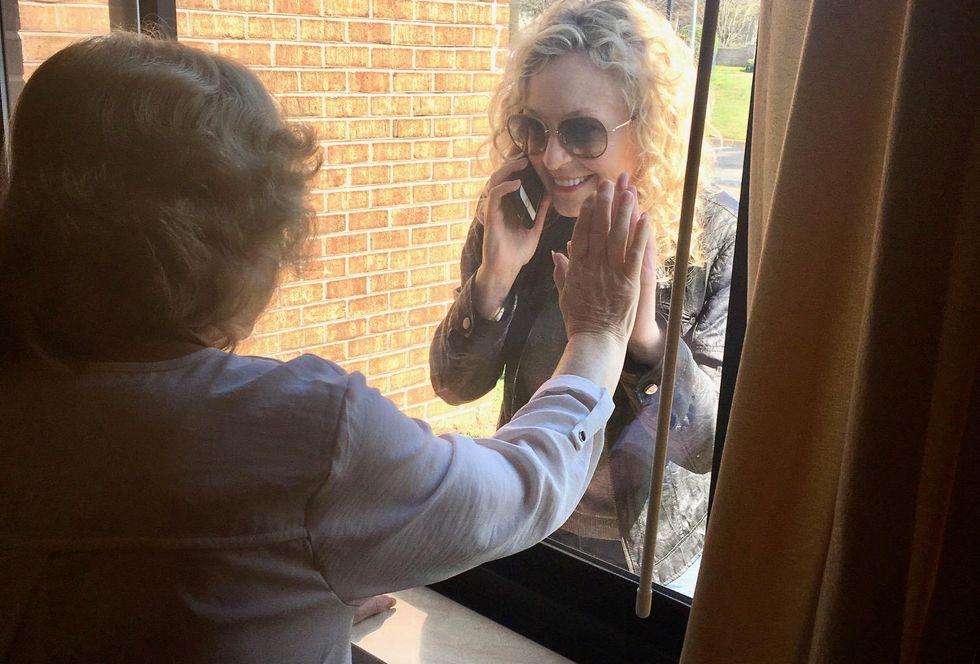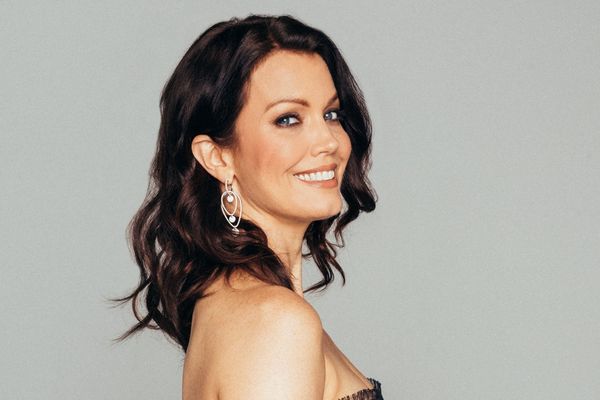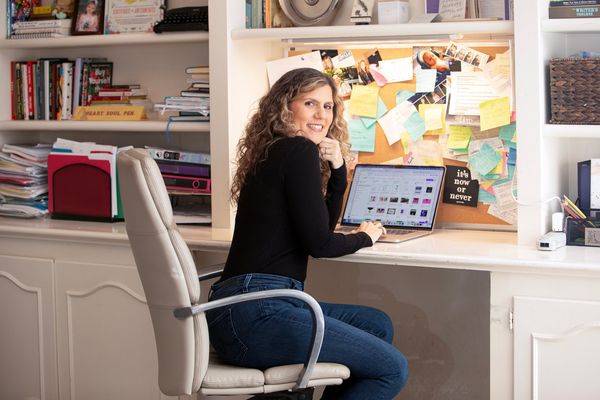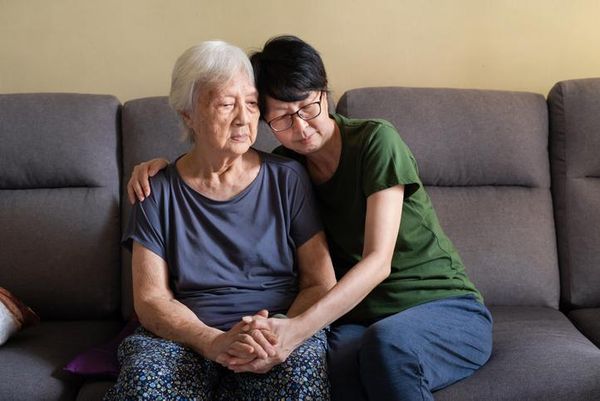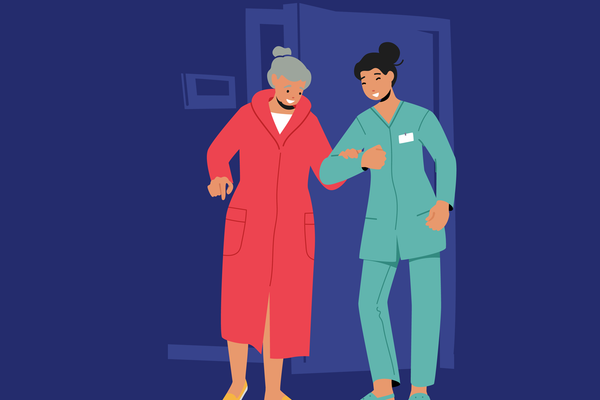My mother moved to Virginia Beach from Queens, New York almost 19 years ago, soon after my stepfather passed away. She said she wanted a warmer climate, but not as hot as Florida. She didn't want to be too far from her daughters, and hoped to connect with her sister, who was in poor health and had relocated to Virginia decades ago.
Mom's years in Virginia were good ones—she enjoyed her house, loved hearing the sound of the ocean in the evenings, and was happy that my husband, daughters and I were frequent visitors.
But two years ago, mom fell and broke her hip (due to osteoporosis). She had emergency surgery and has been living in a local assisted living facility ever since. We decided to keep her lovely house—one block from the ocean—so everyone could visit her as often as possible. And I knew she secretly harbored the hope that one day, she'd be strong enough to return to her home.
Mom has several underlying health conditions that have made it hard for her to recover from the fall and the hip fracture: COPD (chronic obstructive pulmonary disease), diabetes, asthma, Parkinson's, and AFib (atrial fibrillation). Last month, she was hospitalized with pneumonia, something that happens far too frequently to elderly people. After five days on intravenous antibiotics, she recovered, but she returned to assisted living much weaker, with diminished mobility. Now mom depends on four rotating caregivers for help and spends most of her time in a wheelchair.
We decided that she should go to rehab for a few weeks to receive intensive physical and occupational therapy. We hoped that she'd get strong enough to return to using a walker, instead of the wheelchair.
Then COVID-19 happened.
Two weeks ago, my husband and I drove to Virginia from New York to attend an assessment meeting, where mom's team would decide either to transition her back to assisted living or have her stay longer at rehab, for continued physical therapy.
On Mar. 11, while we were on the road to Virginia, the news about coronavirus became increasingly dire. By the next morning, when I met with the rehab team, it was clear that the best decision was to leave mom in rehab for a few weeks until "the coronavirus crisis passed."
Several days later, all care facilities across the country were put into virtual lockdown to protect the most vulnerable among us—the elderly.
Now mom is quarantined in her room, as are all residents of nursing homes, assisted living facilities, and other care centers for the elderly. The only people allowed to enter her building are staff and personal caregivers, including the four incredible women who rotate hours to care for mom (she's a huge fall risk). The only way I've been able to "visit" with mom is to call her on her cell phone. We've had long chats, played guessing games like "Twenty Questions," and discussed the latest COVID-19 news.
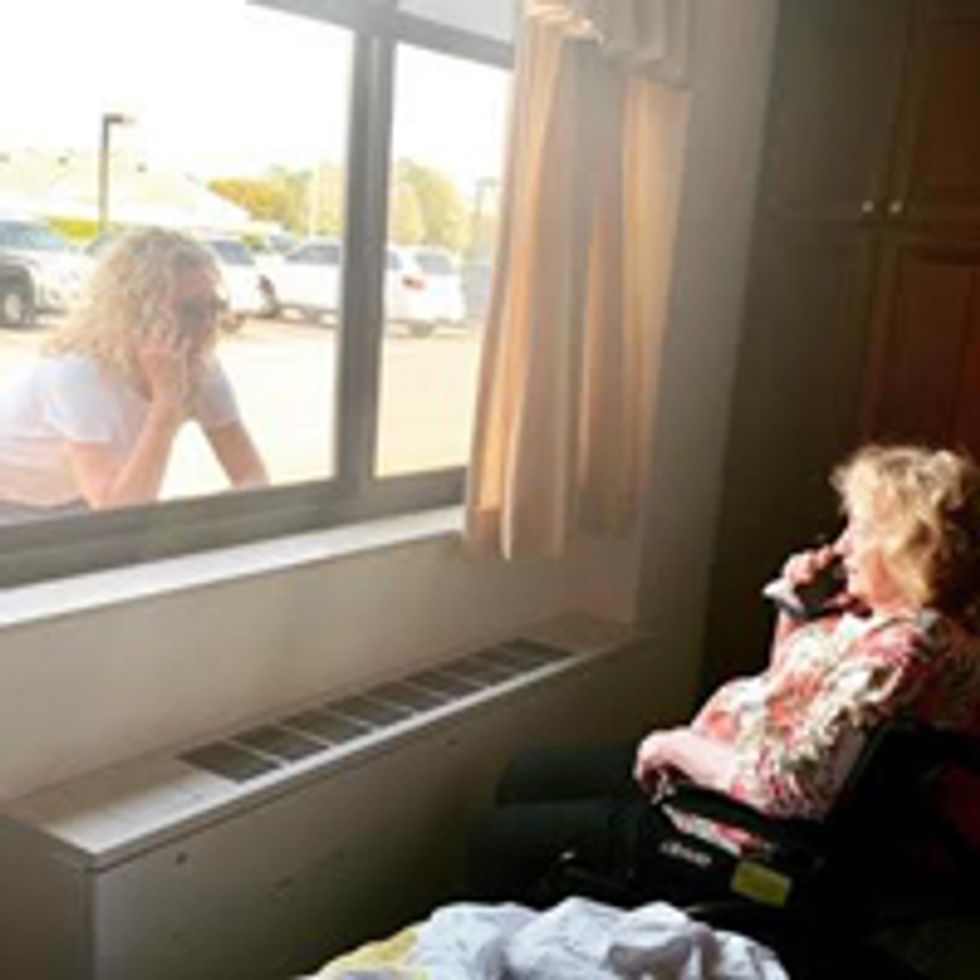
Recently, it was warm enough for her caregiver to open her screened window, letting us talk without our cell phones (I stood away from the window to maintain the proper social distance).
This simple idea has had a tremendous impact on mom. She thinks it's funny that I have to stand outside to chat with her, even in the rain, and she loves to see my husband and dog, too. Her caregivers have told me these visits have really kept her spirits up.
Although we live in New York City, my husband and I are going to stay in Virginia for as long as it takes for this crisis to pass. This way, we can keep visiting mom to cheer her up, bring her special treats (which we must pass to the staff at the main door), and advocate for her when she needs medical attention.
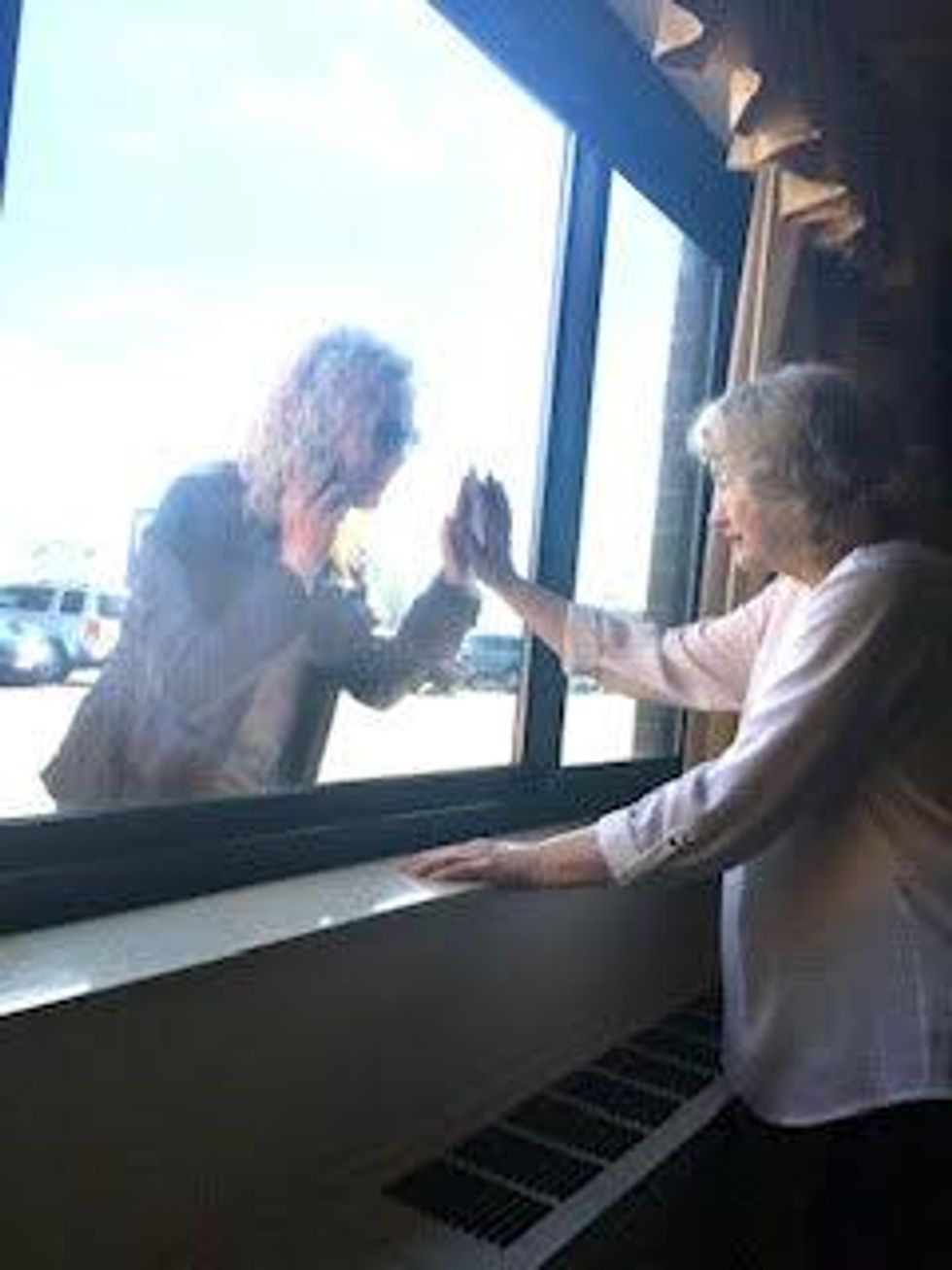
We're all living in a crazy, unprecedented time. The best thing we can do to help our most vulnerable—and ourselves—is to stay home, wash our hands, move our bodies in any way we can (I go out for a run every day), eat well, manage anxiety and stress, get enough sleep . . . and keep our eyes focused firmly on the future.
This post originally appeared on Barbara's blog, www.barbarahannahgrufferman.com
Barbara Hannah Grufferman is a nationally recognized advocate for positive living and the author of Love Your Age: The Small-Step Solution to a Better, Longer, Happier Life, published by National Geographic and AARP. She's an avid marathon runner and an Ambassador for Healthy Women.

